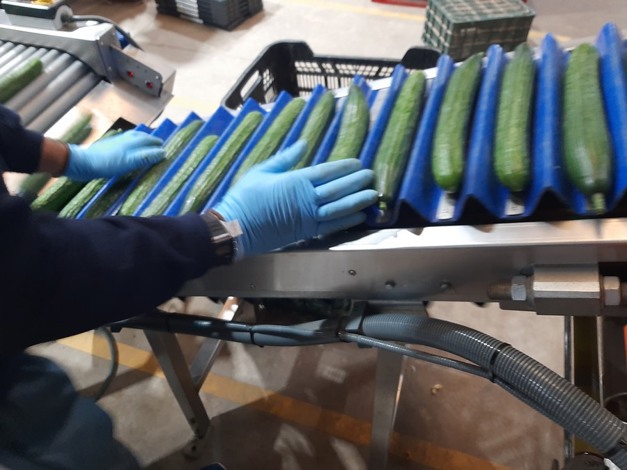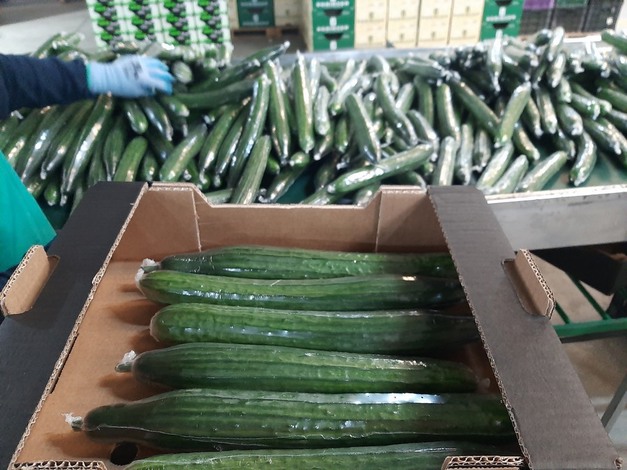The high-tech greenhouses of Romenatur, with which they have managed to significantly increase the volume and quality of their cucumber crops, are among the greenhouses of Paraje la Cumbre, in El Ejido.
"We have a total of 12 hectares: 5 of them in these new greenhouses, another 5 being transformed into high-tech structures, and 2 more with more traditional structures that we are going to keep for now," said Montse Gonzalez. "In addition to cucumbers, we also grow Palermo peppers; these are our two specialties. Still, cucumbers benefit the most from this kind of structures in terms of quantity, homogeneity and quality."
"At the moment, we are harvesting about 20-23 kilos per square meter," says Juanmi Romera. "We are talking about between 1 and 1,150 million kilos in 5 hectares; that is, up to 30% more production than in a traditional greenhouse."
This type of high-roof greenhouse also allows the implementation of cultivation techniques that maximize the use of the space available without limiting the amount of light that the plants receive as they grow, and which helps maintain the size and quality of the fruit stable throughout the entire growing cycle.

"We planted the cucumbers on October 7, and by November 20, the plants are already about 3 meters tall. By March 25, which is when the cultivation period will end, they will have grown to 6 or 9 meters. To help the plants keep up without any load or growth issues, we are pruning the leaves at the base and the flowers, and we're de-leafing them so that they maintain a height of about 3 meters and a constant load of cucumbers."
"By working with the plants in this way, we obtain homogeneous fruits of a stable caliber, without ever producing any second or third class cucumbers. In fact, we are only harvesting first-class cucumbers from the start."

"Palermo consumption is increasing by 8 to 10% per year"
Regarding Palermo peppers, as we tour his plantation in a nearby greenhouse Juanmi says that "this year we have opted for the Rijk Zwaan Palermo Rock variety, with resistance to powdery mildew. This resistance gives us greater peace of mind, knowing that we won't have problems with the disease, especially considering that, season after season, peppers are under greater pressure from viruses and pests."
"Right now we are harvesting the green peppers, getting things ready for the red bell pepper harvest, which will be carried out during the months of February, March and April, and for the green Palermo, with which we will continue until the end of May."
Palermo peppers "are doing very well in the market," says Juanmi. "Their consumption is growing at around 8-10% per year, and even though their market isn't as large as that of bell peppers, it is highly appreciated throughout Europe, where our peppers are delivered every season."
For more information:
Romenatur
Paraje la Cumbre s/n
04700 El Ejido, Almería. Spain
Tel.: +34 645 765 095 / +34 645 769 977
[email protected]
www.romenatur.com










